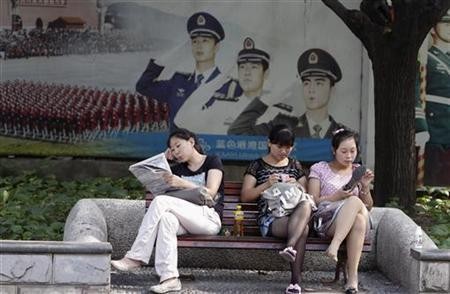While the sweeping changes to the legal system that were implemented throughout China over the course of 2014 certainly deserve commensurate recognition, the impact upon the country's female citizens requires further scrutiny.
Even though the findings of the recent Human Rights Watch (HRW) report were inadequate due to the absence of China's legal reforms, the status of gender equality within the east Asian nation remains imbalanced, as China's leading academics will attest.
The issue of gender equality was raised in a timely manner in January, when the Hubei Women's Federation and Hubei Women's Studies Society--both are based at the Central China Normal University (CCNU)--jointly established the Gender Equality Forum, announcing that the forum will meet regularly on Hubei college campuses in the future.
The Jan. 20 gathering also provided an opportunity for the attendees, including experts and scholars, to discuss China's gender issues in the context of a legislative and policy framework.
What became evident in Hubei, and needs to be continually examined by the nation's policy and lawmakers going forward, were the gaps that exist in China's laws and policies, with rural women especially affected.
According to Professor Sun Jin from Wuhan University, "gender discrimination has not been properly defined" and "Chinese laws . . . cannot provide women with sufficient protection." As a result of the situation outlined by the Wuhan University scholar, "many laws and regulations meant to address such issues have not been implemented."
The situation in rural communities, whereby the degree of inequality is more pronounced in comparison to urban women, has attracted the attention of researchers and academics. A Jiangsu Women's Federation survey found that the concept of gender equality is absent from 57.2 percent of village regulations and non-governmental agreements, while 73.0 percent of those that consider the relevance of gender mention only marriage and family planning matters.
Zhang Yongying, an associate researcher at the Women's Studies Institute of China, accepted that efforts have been made in the area of rural women's rights, but stated to the forum that "such unequal treatment of women remains an unfortunate reality" in rural China.
A striking feature of the forum was the emergence of numerous plans from experts who shared their views on what needs to occur to redress the current injustice. Furthermore, the articulated measures that the government can undertake to advance the status of women in China were not random netizen comments--they were spoken by esteemed professors.
If Beijing wishes to comprehensively uphold the "rule of law" in China, then such words need to be heard.



























